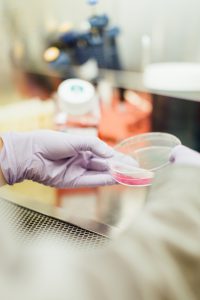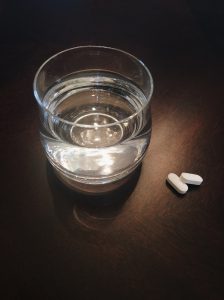What Does Antibiotic Resistance Mean And What Do We Do When Antibiotics Don’t Work Anymore?

“Evolution always wins.”, says Maryn McKenna in her powerful TED talk “What do we do when antibiotics don’t work anymore”. You’ve probably already heard about it or read about it somewhere: there is a global drug-resistance crisis. We at FindMeCure, as you can guess, believe that humanity can stay one step ahead of naturally occurring diseases – this is the reason we believe in medical research and clinical trials. We have faith in the future of medicine because we stay informed about the incredible progress science makes every day.
There are some concerns, however, which can’t be overlooked or simply left to medical progress. And as is the case with antibiotics resistance – we need to be proactive and take all the extra steps needed to stay ahead of the drug-resistant bacteria until there’s another breakthrough in the medical world.
 But first, what is the case exactly? According to WHO antibiotic resistance is “one of the biggest threats to global health”[1] today. Forget about cancer, cancer looks like a common cold compared to the world we can anticipate in 2050 should the antibiotic resistance rates stay on the same course. As Maryn McKenna points out – antibiotics don’t just fight infections. We use them pre-surgery, for people with a weakened immune system (think cancer or AIDS patients, premature babies), when installing foreign objects in the body… even a simple hospital birth with no complications can be lethal for 1 out of 100 women without antibiotics.
But first, what is the case exactly? According to WHO antibiotic resistance is “one of the biggest threats to global health”[1] today. Forget about cancer, cancer looks like a common cold compared to the world we can anticipate in 2050 should the antibiotic resistance rates stay on the same course. As Maryn McKenna points out – antibiotics don’t just fight infections. We use them pre-surgery, for people with a weakened immune system (think cancer or AIDS patients, premature babies), when installing foreign objects in the body… even a simple hospital birth with no complications can be lethal for 1 out of 100 women without antibiotics.
What does antibiotic resistance mean, what exactly is happening? It’s quite simple, really: coevolution. As we develop newer drugs to kill bacteria, thus gaining an advantage in the natural selection field, bacteria evolve too and it becomes resistant to the drugs. So we develop new drugs – bacteria evolve again, and it does so faster than we can develop the next drug until eventually it catches up to us and we no longer have an advantage.
This process is terrifyingly accelerated in recent years though, hence why we talk about a “crisis”. But what is causing this acceleration? Well, it might be a hard truth to swallow but – we are. We are what is causing the acceleration of antibiotic resistance with our misuse of antibiotics, sometimes prescribed for ailments best treated in other ways.
But apart from incorrect use in humans, antibiotic use in farming is also a big issue. Animals raised for meat are routinely given antibiotics in order to gain more weight and have a higher chance of survival in the horrendous conditions they live in. Antibiotics are even used in agriculture, with citruses and apples being most likely to have been treated with them.
 The question remains, what can we do, apart from hoping and waiting for new antibiotics? And the truth of the matter is, we can do plenty. And we should do the necessary changes regardless of how fast scientists come up with newer and newer solutions, because if our behaviour doesn’t change, bacteria will keep on evolving and catching up with the newly developed drugs on the same fast pace. So, first there is prevention: vaccination, proper hygiene, practicing safe sex, and changing our diet even. We should be willing to give up animal products produced by conventional farming even if the alternative is a bit more expensive and insist on changes in the meat industry and mainstream agriculture on a larger scale.
The question remains, what can we do, apart from hoping and waiting for new antibiotics? And the truth of the matter is, we can do plenty. And we should do the necessary changes regardless of how fast scientists come up with newer and newer solutions, because if our behaviour doesn’t change, bacteria will keep on evolving and catching up with the newly developed drugs on the same fast pace. So, first there is prevention: vaccination, proper hygiene, practicing safe sex, and changing our diet even. We should be willing to give up animal products produced by conventional farming even if the alternative is a bit more expensive and insist on changes in the meat industry and mainstream agriculture on a larger scale.
Then, there is appropriate antibiotics use, which should have been the case all along. Making antibiotics accessible only when really needed is a step in the right direction. However, this means institutional efforts and gatekeepers, and it takes some time. What you can do immediately is talking to your doctor – ask about alternatives. In some cases you can actually avoid taking antibiotics if you state your preferences and there is a way around them. And whatever is going on, don’t self-medicate – turn to your doctor first.
 Lastly, we can start thinking about alternative ways to fight drug-resistant bacteria, also called “superbugs” these days. According to David Brenner one such solution might be far-UVC light – a wavelength of the ultraviolet light lethal for bacteria (all kinds of bacteria, even the drug-resistant kind) but safe for humans[2]. Far-UVC light also happens to be inexpensive, unlike antibiotics-related medical research, and it was proven safe and effective. David Brenner envisions the future like this: far-UVC light in surgery theaters, schools, restaurant kitchens, airports. And though right now we’re still talking about developing new drugs to fight these so-called superbugs, maybe far-UVC light can turn out to be a more permanent solution to our problems.
Lastly, we can start thinking about alternative ways to fight drug-resistant bacteria, also called “superbugs” these days. According to David Brenner one such solution might be far-UVC light – a wavelength of the ultraviolet light lethal for bacteria (all kinds of bacteria, even the drug-resistant kind) but safe for humans[2]. Far-UVC light also happens to be inexpensive, unlike antibiotics-related medical research, and it was proven safe and effective. David Brenner envisions the future like this: far-UVC light in surgery theaters, schools, restaurant kitchens, airports. And though right now we’re still talking about developing new drugs to fight these so-called superbugs, maybe far-UVC light can turn out to be a more permanent solution to our problems.
[1] http://www.who.int/mediacentre/factsheets/antibiotic-resistance/en/
[2] https://www.ted.com/talks/david_brenner_a_new_weapon_in_the_fight_against_superbugs#t-290204
Article by Nelly Katsarova

